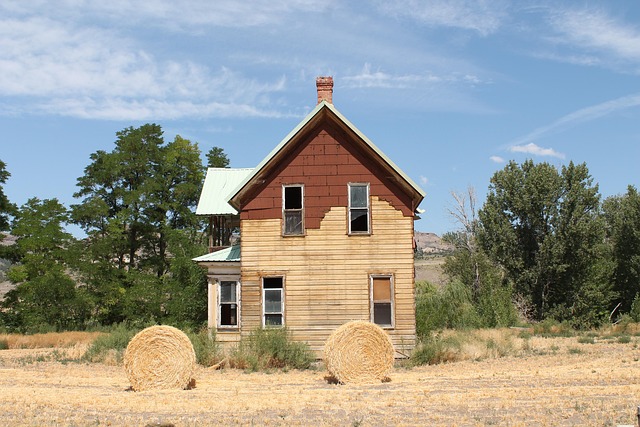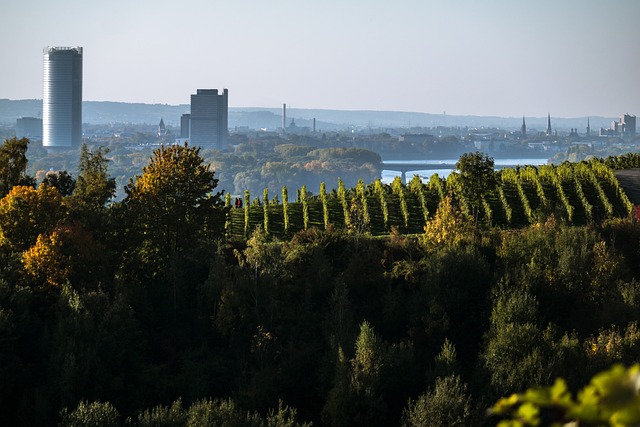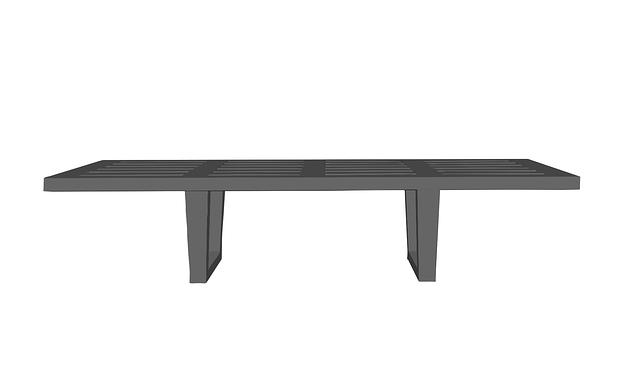Senior Apartments Eugene Oregon: Cultural Living, Engaged Community
Discover the vibrant side of senior living in Eugene, Oregon, where cultural events flourish and apa…….
We are At Your Service
The elderly population is a vital segment of any society, and providing them with suitable housing options that cater to their unique needs is a critical aspect of urban planning and social welfare. In the vibrant city of Eugene, Oregon, the landscape of senior housing has evolved to meet the diverse requirements of its aging residents. This article aims to offer an in-depth exploration of the various senior housing options available in Eugene, delving into their types, development, impact, and future prospects. By understanding the intricacies of this topic, we can appreciate the importance of these housing solutions in enhancing the quality of life for seniors and shaping the city’s overall livability.
Senior housing options refer to a range of residential accommodations specifically designed to meet the needs of individuals aged 65 years and above. These options are tailored to address common challenges faced by seniors, such as mobility issues, social isolation, and access to healthcare services. In Eugene, Oregon, senior housing encompasses a diverse array of living arrangements, including independent living facilities, assisted living communities, retirement homes, and supportive housing units.
The core components of these housing options typically include:
Accommodation: Senior housing provides private or shared residences equipped with features that cater to the physical needs of seniors, such as grab bars in bathrooms, ramp access, and wheelchair-friendly layouts.
Healthcare Services: Many senior housing facilities offer on-site medical care, including regular health checks, medication management, and assistance with chronic conditions. Some communities have partnerships with local healthcare providers for specialized services.
Social Activities and Engagement: A vital aspect of senior living is social interaction. Housing options often organize group activities, hobbies, cultural events, and recreational programs to foster a sense of community and combat loneliness.
Meal Services: Dining arrangements can range from restaurant-style meals to more casual settings. Some communities emphasize healthy eating, offering nutritious meals tailored to individual dietary needs.
Supportive Services: These may include transportation assistance, housekeeping, laundry facilities, and personal care services, ensuring seniors have access to help with daily tasks.
The concept of senior housing in Eugene has evolved over the years, adapting to changing demographics and societal values. Initially focused on providing a safe place for the elderly to live independently, these options now encompass a holistic approach, integrating healthcare, social engagement, and community building.
The influence of global trends has significantly shaped the development of senior housing options worldwide, including Eugene. Here are some key international influences:
Aging Population: The global aging trend, with an increasing proportion of people over 65 years old, has spurred demand for senior housing worldwide. According to the World Health Organization (WHO), the number of people aged 60 and above is projected to reach 2.1 billion by 2050. This demographic shift underscores the need for robust senior housing infrastructure.
Urbanization: The migration of seniors to urban areas, driven by better access to healthcare and social services, has influenced the development of specialized housing in cities like Eugene. Urban senior housing options cater to this growing urban population, offering convenient locations and easy access to amenities.
Technology Integration: Technological advancements have revolutionized senior housing globally. From smart homes with automated systems to telemedicine and remote health monitoring, technology enhances independence and provides efficient care. These innovations are increasingly adopted in Eugene’s senior living communities.
International trends also highlight successful models for senior housing, such as:
European Models: Countries like Denmark and the Netherlands have pioneered conceptually innovative senior housing projects, integrating healthcare, social services, and residential living. These models emphasize community engagement and independent living.
Asian Innovations: Japan’s aging society has led to unique solutions, including multi-generational housing, where seniors live alongside younger families, fostering intergenerational connections. This approach could offer insights into creating inclusive senior housing in Eugene.
North American Trends: The United States and Canada have seen a rise in lifestyle-focused senior communities, offering amenities similar to those found in retirement resorts, catering to an active aging population.
The economic landscape surrounding senior housing options in Eugene Oregon is multifaceted, with various market dynamics at play:
| Market Dynamics | Impact |
|---|---|
| Demographic Shifts: The growing elderly population has increased demand for senior housing, driving investment and development. | Leads to a vibrant competitive market with diverse housing options. |
| Affordability Concerns: Balancing the cost of senior housing with residents’ financial capabilities is essential. | Encourages developers to offer various price points and housing types. |
| Government Subsidies: Public funding supports affordable senior housing, ensuring accessibility for low-income seniors. | Helps stabilize the market and promotes inclusive housing practices. |
| Market Segmentation: Different segments of the elderly population have varying needs and preferences. | Enables developers to tailor housing options, catering to specific demographics. |
Investment Patterns: Eugene’s senior housing market has attracted significant investment from local developers, private equity firms, and even out-of-state investors. The city’s growing reputation as a desirable place to retire has fueled this interest. Investment trends include:
Acquisition of Existing Facilities: Some investors prefer acquiring established senior living communities, benefiting from their proven track records and existing tenant bases.
Development of New Projects: There is also substantial investment in building new facilities, particularly in areas with high demand and limited availability.
Mix-Use Developments: Integrating senior housing into mixed-use projects combines residential and commercial spaces, enhancing community engagement and accessibility.
Technology plays a pivotal role in modernizing senior housing options, improving quality of life, and enabling efficient care:
Smart Home Systems: Automation in homes allows seniors to control lighting, temperature, and security remotely. Voice-activated assistants offer convenient access to information and services.
Telehealth and Remote Monitoring: These technologies enable healthcare providers to monitor seniors’ vital signs and overall health remotely, ensuring timely interventions.
Mobile Health Apps: Senior residents can use these apps for medication reminders, appointment scheduling, and easy communication with caregivers or healthcare staff.
Virtual Reality (VR) and Augmented Reality (AR): VR offers immersive experiences for social engagement and therapy, while AR assists in daily tasks by providing visual guides and instructions.
Data Analytics: Analyzing resident data can reveal trends, improve care quality, and personalize services to individual needs.
Local tech startups and collaborations between housing providers and technology companies are driving these advancements in Eugene. The city’s thriving tech industry contributes to its ability to embrace innovative solutions in senior housing.
The development and operation of senior housing options in Eugene Oregon are subject to various policies, regulations, and legislative frameworks:
Zoning Laws: Local zoning ordinances dictate land use, including the types of residential facilities that can be built and their permitted locations. These laws ensure appropriate density and mix of land uses.
Building Codes: Safety standards and building regulations must be adhered to during construction and renovation projects. These codes address accessibility, structural integrity, and fire safety.
Healthcare Licensing: Facilities providing medical services are subject to licensing requirements by the state’s healthcare regulatory bodies, ensuring quality care.
Housing Affordability Policies: Programs like Section 8 housing vouchers and low-income subsidies aim to make senior housing more accessible for financially vulnerable residents.
Environmental Regulations: Sustainable building practices and energy efficiency standards are encouraged to minimize the environmental impact of new developments.
Anti-Discrimination Laws: These ensure equal access to housing and services, protecting seniors’ rights against discrimination based on age or disability.
Despite its benefits, senior housing in Eugene faces several challenges and criticisms that require strategic solutions:
| Challenges | Strategies for Addressing |
|---|---|
| High Costs: Senior housing can be expensive, making it inaccessible for some low-income seniors. | Government subsidies, income-based pricing models, and partnerships with nonprofit organizations to offer affordable options. |
| Isolation and Loneliness: Seniors may experience social isolation, especially in independent living facilities. | Encourage community events, intergenerational programs, and volunteer initiatives to foster connections and combat loneliness. |
| Inadequate Healthcare Access: Remote areas might have limited healthcare services. | Advocate for telemedicine expansion and mobile clinics to bring healthcare closer to seniors’ residences. |
| Rapid Technological Changes: Keeping up with technological advancements can be challenging. | Provide training programs and tech support to ensure residents can benefit from and adapt to new technologies. |
| Regulatory Compliance: Staying current with evolving regulations is demanding. | Establish regulatory oversight committees and industry associations to facilitate compliance and knowledge sharing. |
The Grand Oaks, located on the outskirts of Eugene, is a thriving retirement community known for its holistic approach to senior living. Key features include:
Mixed-Use Design: The development seamlessly integrates housing, retail spaces, and recreational facilities, fostering a vibrant community atmosphere.
Indigenous Integration: Incorporating indigenous plant species in landscaping and designing cultural events inspired by local Native American traditions provides a unique sense of place for residents.
Technology Integration: Smart home systems and tablets with preloaded apps offer easy access to services, entertainment, and communication tools.
Community Garden: A shared garden space encourages residents’ physical activity and social interaction, promoting mental well-being.
Lessons Learned: The success of Grand Oaks demonstrates that blending housing with community amenities creates a desirable living environment. Its focus on cultural integration and technology adoption highlights the importance of innovation in senior care.
Hillcrest is a low-income senior apartment complex in downtown Eugene, offering affordable housing for individuals with diverse needs:
Supportive Services: On-site staff provide assistance with daily tasks, transportation to medical appointments, and access to local community resources.
Intergenerational Programs: Regular events involve residents with local schools, fostering connections between generations.
Accessibility Features: The complex is designed with universal design principles, ensuring ease of access for residents with mobility challenges.
Key Takeaway: Hillcrest’s success lies in its comprehensive approach to addressing affordable housing needs. By offering a range of supportive services and intergenerational activities, it enhances the quality of life for its residents while strengthening community bonds.
The future of senior housing options in Eugene Oregon looks promising, with several emerging trends and strategic considerations:
Technology-Enhanced Care: AI-powered healthcare assistants, wearable health monitoring devices, and advanced telemedicine will continue to revolutionize care delivery.
Customized Living: Personalized living environments that cater to individual preferences and needs will gain prominence. This includes adaptable floor plans and customizable services.
Green Senior Housing: Sustainability will be a focus, with energy-efficient buildings, eco-friendly materials, and green spaces promoting healthy aging.
Housing for Diverse Populations: There is an increasing demand for housing that caters to LGBTQ+ seniors, caregivers, and individuals with specific health conditions or disabilities.
Community Engagement: Senior housing will increasingly involve community-focused amenities, such as co-working spaces, art studios, and shared gardens, fostering social connections.
Research and Innovation Hubs: Eugene could become a hub for research into aging, attracting experts and startups to drive innovative solutions.
The exploration of senior housing options in Eugene Oregon reveals a vibrant landscape of opportunities and challenges. As the city continues to grow and its population ages, the need for diverse, high-quality housing choices becomes increasingly critical. By embracing technological advancements, fostering community integration, and addressing economic accessibility, Eugene can lead the way in creating exceptional senior living environments.
The case studies presented illustrate successful models that can inspire further development. As the city navigates future growth, policymakers, developers, and community leaders must collaborate to ensure that senior housing remains a cornerstone of Eugene’s social fabric, enhancing the well-being and quality of life for its aging residents.
Q: What types of senior housing are available in Eugene, Oregon?
A: Eugene offers a range of options, including independent living facilities, assisted living communities, retirement homes, and supportive housing units tailored to various needs and budgets.
Q: How do I find affordable senior housing?
A: Local governments often have resources for affordable housing programs. Contacting social services or visiting housing authority websites can provide information on subsidies, vouchers, and low-income housing options.
Q: Are there technology requirements for senior housing?
A: While not mandatory, embracing technology enhances independence and convenience. Basic digital literacy training is often available to help seniors navigate modern amenities.
Q: How can I ensure my loved one’s safety in a senior living community?
A: Reputable facilities conduct thorough background checks on staff and maintain strict security protocols. Regular communication with caregivers or administrators ensures peace of mind.
Q: What are the benefits of intergenerational housing?
A: Intergenerational housing fosters connections, promotes cultural exchange, and enhances social well-being for all age groups involved, contributing to a more cohesive community.

Discover the vibrant side of senior living in Eugene, Oregon, where cultural events flourish and apa…….

Eugene, Oregon, offers a diverse range of senior housing options, from independent to assisted livin…….

Retirement communities in Eugene, Oregon, offer an appealing lifestyle for active seniors, focusing…….

In Eugene, Oregon, independent senior living options are growing in popularity among active retirees…….

Senior apartments in Eugene, Oregon, offer an inclusive, community-focused living environment for se…….

Senior housing in Eugene, Oregon, offers tailored living solutions for older adults, combining indep…….

Retirees in Eugene, Oregon, enjoy a diverse range of senior living options catering to active lifest…….

Senior living in Eugene, Oregon offers diverse options catering to various needs, from independent t…….

Seniors in Eugene, Oregon, have a variety of housing options, from independent living to assisted ca…….